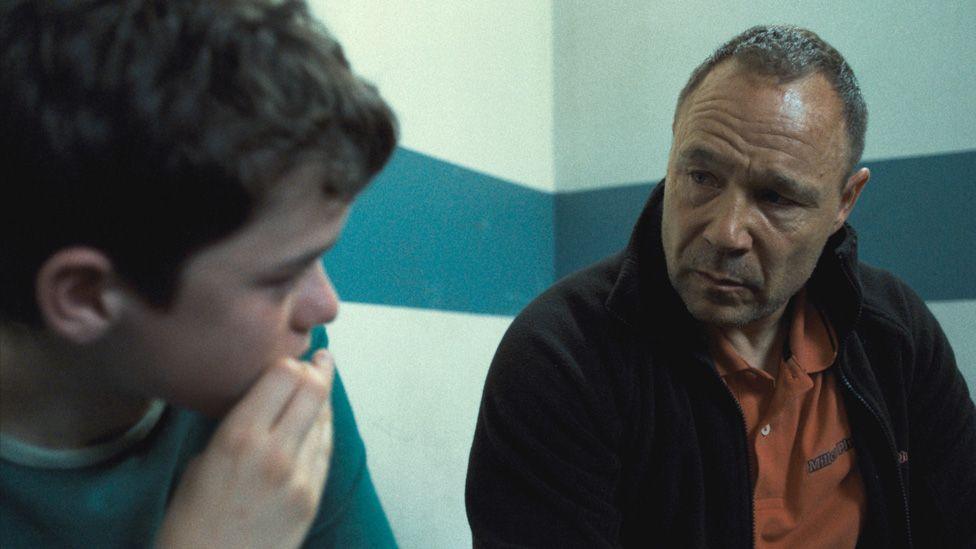Tax breaks call to boost Yorkshire's film industry
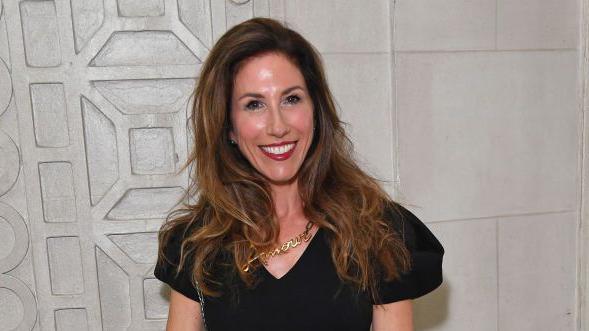
Gaynor Faye says companies like the one founded by her late mother need support to make content produced in Yorkshire
- Published
Yorkshire actor and writer Gaynor Faye has urged the chancellor to give production companies tax breaks to "actually film in the region" in the upcoming Budget.
The West Yorkshire Combined Authority estimates 9,000 businesses and 48,000 people form the region's creative sector.
Faye, who is also creative director of local company Rollem Productions, founded by her late mother, writer Kay Mellor, said more financial support was needed to encourage film-makers to make Yorkshire their canvas.
The government previously said it was "committed to competitive tax reliefs" in the industry, including the Independent Film Tax Credit.
Faye, from Leeds, said Rollem Productions had been a "massive supporter" of the TV and film industry in Yorkshire.
But she said: "It really pained my mum, and it does me now, to see productions having to go overseas because of a lack of funding support."
Many major titles have been shot in the region in recent years, including Netflix series Adolescence, Sally Wainwright drama Riot Women and Danny Boyle's upcoming film Ink.
However, Faye said she recently starred in a series that was shot in Ireland.
"That was supposed to be Yorkshire, it's hugely damaging to the production crew within the region and we're in real danger of creating a huge skills gap," she said.
"We need tax breaks for production companies like ours to actually film in the region."
Faye said filming often went to countries were better tax breaks were on offer to the film company.
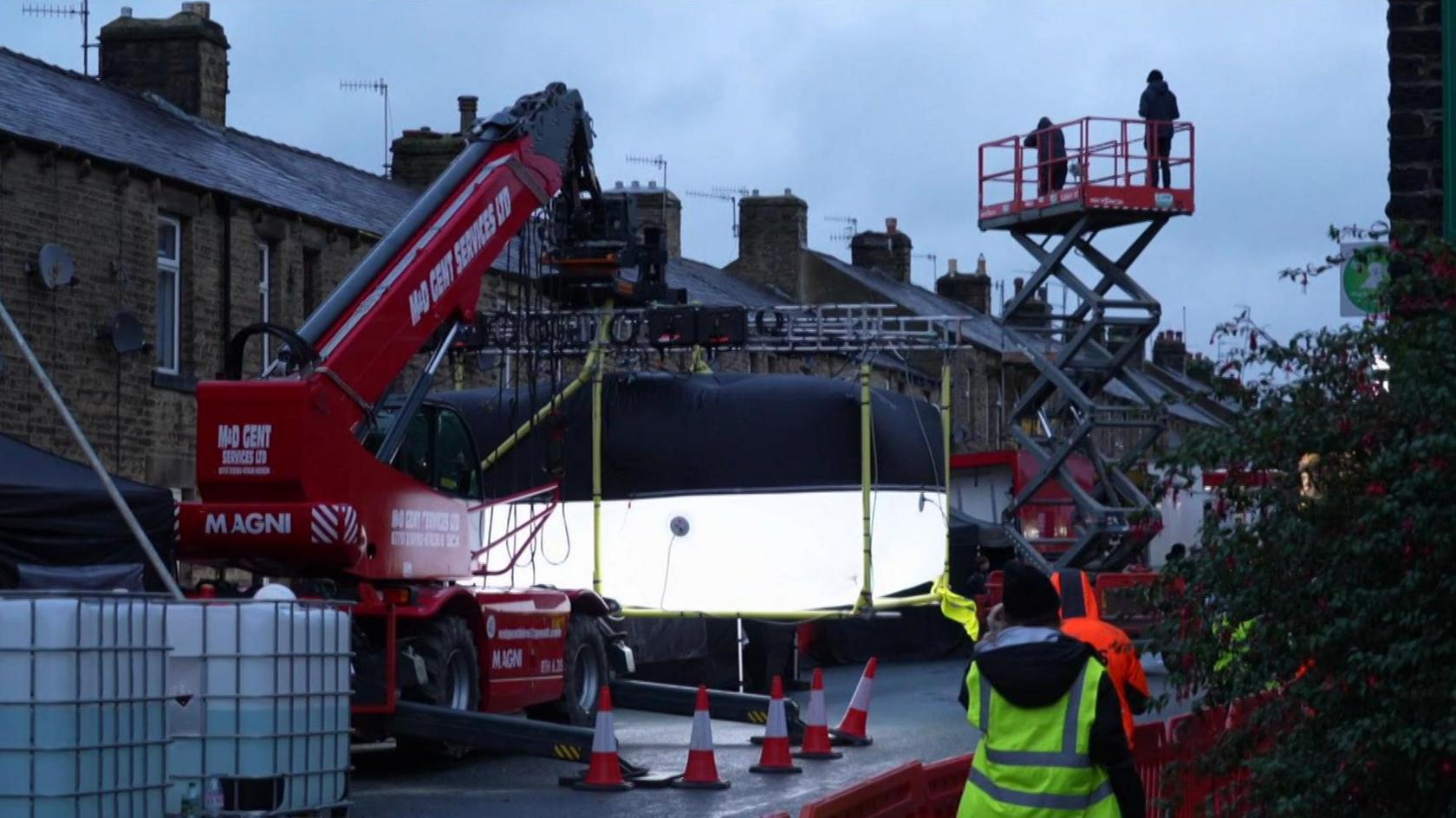
Film crews used a street in Skipton for the upcoming Harry Potter drama
Faye, whose credits include Fat Friends and Emmerdale, said independent firms also needed support to be able to compete with the major production companies.
"We need upfront funding, you know, to develop ideas."
She said in many cases independent companies did not have the resources to develop a project to completed script that broadcasters, especially streaming companies, often demanded.
Faye said Rollem had continued the work started by her mother to "support and nurture underrepresented new talent".
"Until now, we've self-funded many schemes, like the Kay Mellor Fellowship, New Writing North, Women in Film and TV Screenwriters Lab."
However, she said it was "time-consuming and expensive" in addition to trying to keep on top of the company's own projects, "developing content set within our region that we're committed to producing locally".
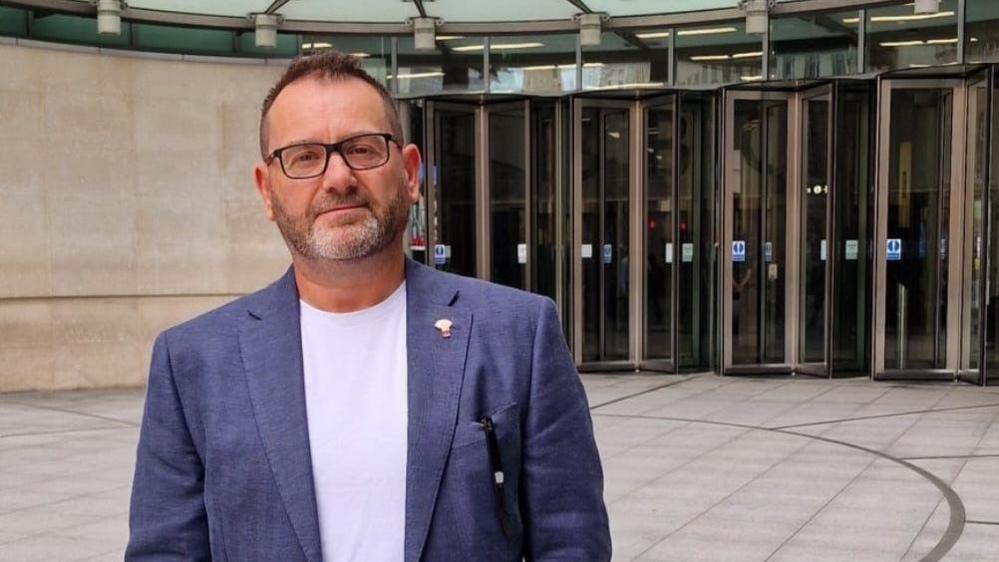
David Clayton from Film Wakefield backs calls for more support for the film industry in the Budget
David Clayton, who has worked in the film industry for 30 years, said he believed production companies liked to work in the region as "Yorkshire people are nice, polite, get on with everyone and always go the extra mile".
However, he warned some companies were still looking overseas for financial reasons.
"Over the last couple of years other countries have offered better tax breaks, so it might be better for productions to film in Hungary or Malta because they are given better benefits," he said.
Mr Clayton, of Policelot, which supplies police uniforms, equipment and sets to the TV and film industry, said local productions created a chain of expenditure across the region.
"There are crews that need feeding, toilet facilities, not only are they going to need the great actors but they also need all infrastructure that goes with that - electricians, carpenters, set design, prop suppliers, costume, hair and make-up."
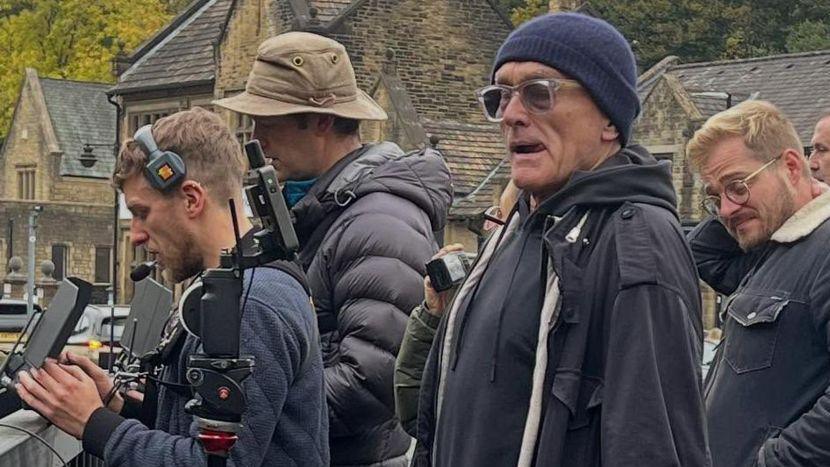
Danny Boyle (centre) is directing a film about the rise of media mogul Rupert Murdoch and spent two days filming in Hebden Bridge and Sowerby Bridge
In September, West Yorkshire was one of six areas to receive £25m from the government's Creative Places Fund to boost creative industries.
West Yorkshire Mayor Tracy Brabin said: "For too long, our creative industries have been disproportionately concentrated in London and the South East, fuelled by talent from the rest of the country.
"Now, this government is working with mayors to reset the dial, giving creatives across the country a fair chance to flourish, without them needing to leave to achieve."
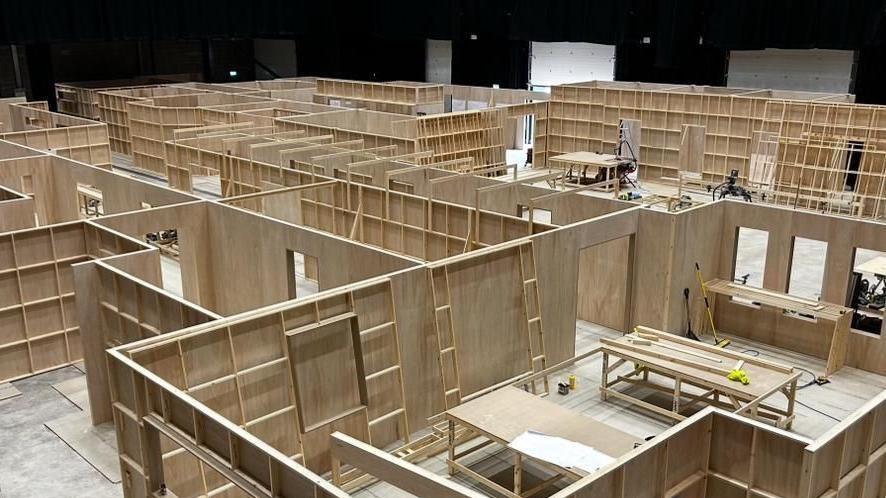
Crews spent six weeks building sets for Adolescence at Production Park based in Wakefield
In the Labour government's first Budget last year, Chancellor Rachel Reeves said she recognised the value of the creative industries to the economy.
But a letter last month from the Culture, Media and Sport Committee, external urged her to do more for the sector.
Dame Caroline Dinenage MP, committee chair, said: "The introduction of the Independent Film Tax Credit in the last Budget has provided a welcome boost to our film industry, but without proper marketing many great British films end up missing out on the audiences they deserve."
The chancellor will set out her Budget on 26 November.
Get in touch
Tell us which stories we should cover in Yorkshire
Listen to highlights from West Yorkshire on BBC Sounds, catch up with the latest episode of Look North or tell us a story you think we should be covering here, external.
Related topics
More stories like this
- Published6 March 2024

- Published22 March
